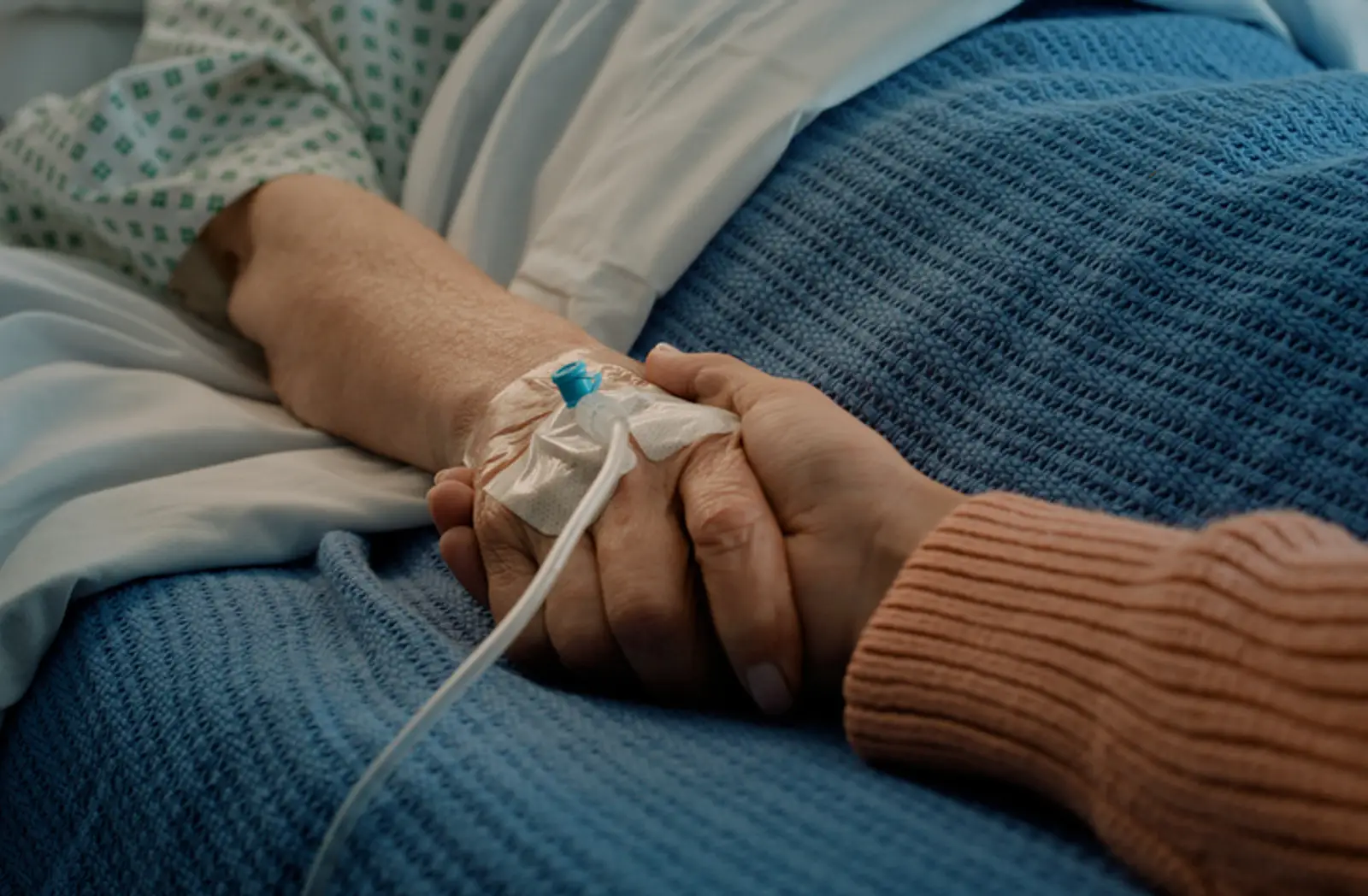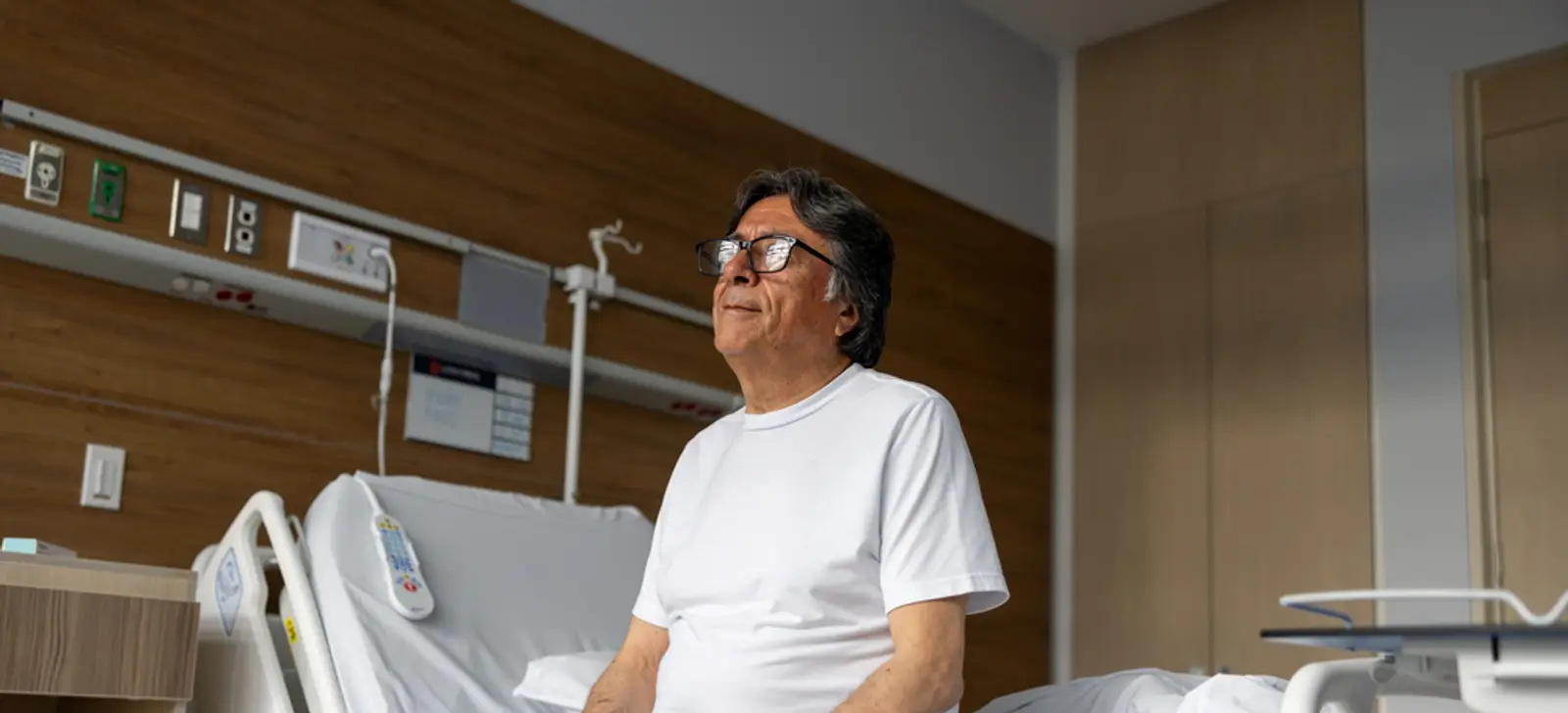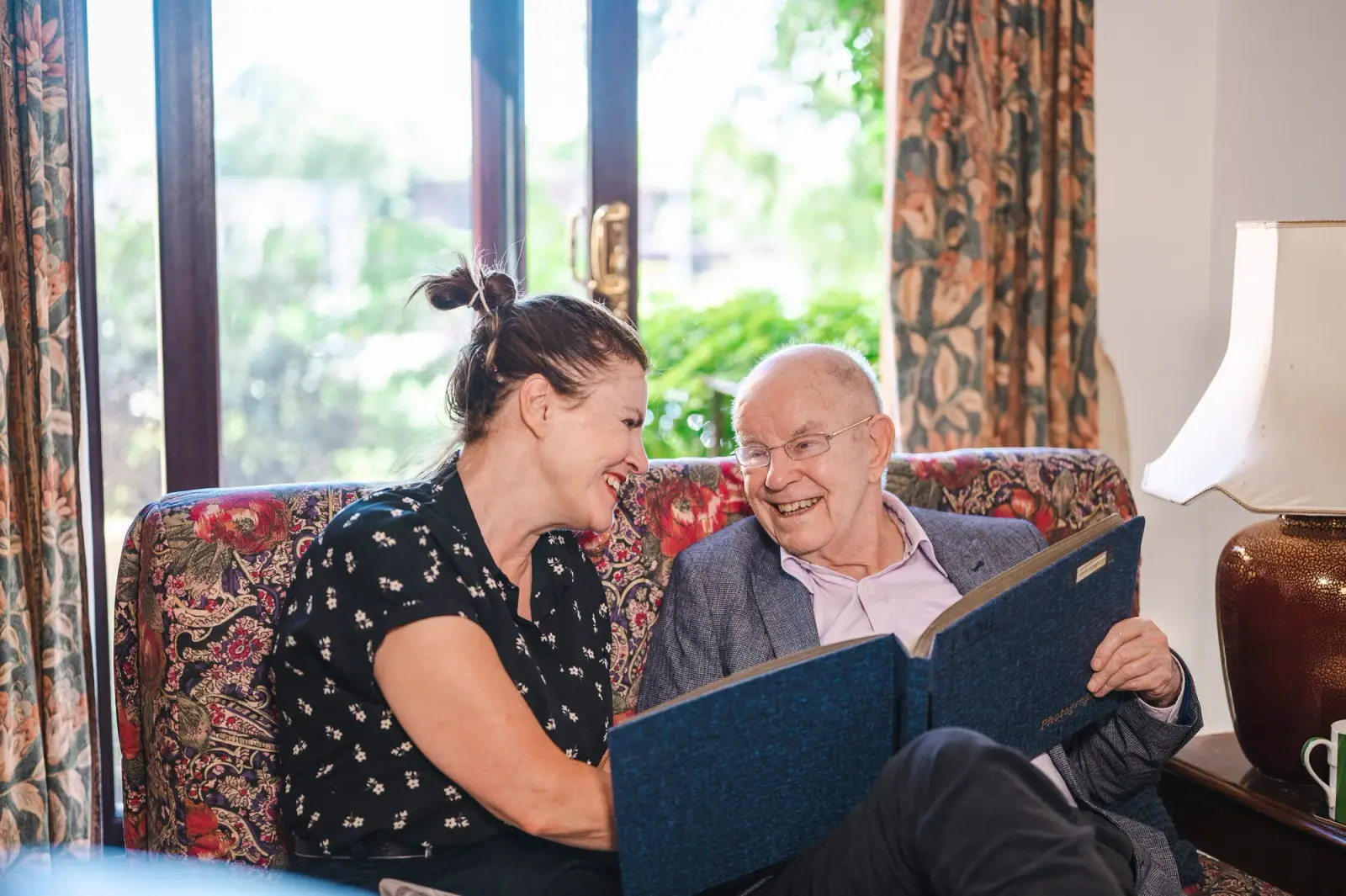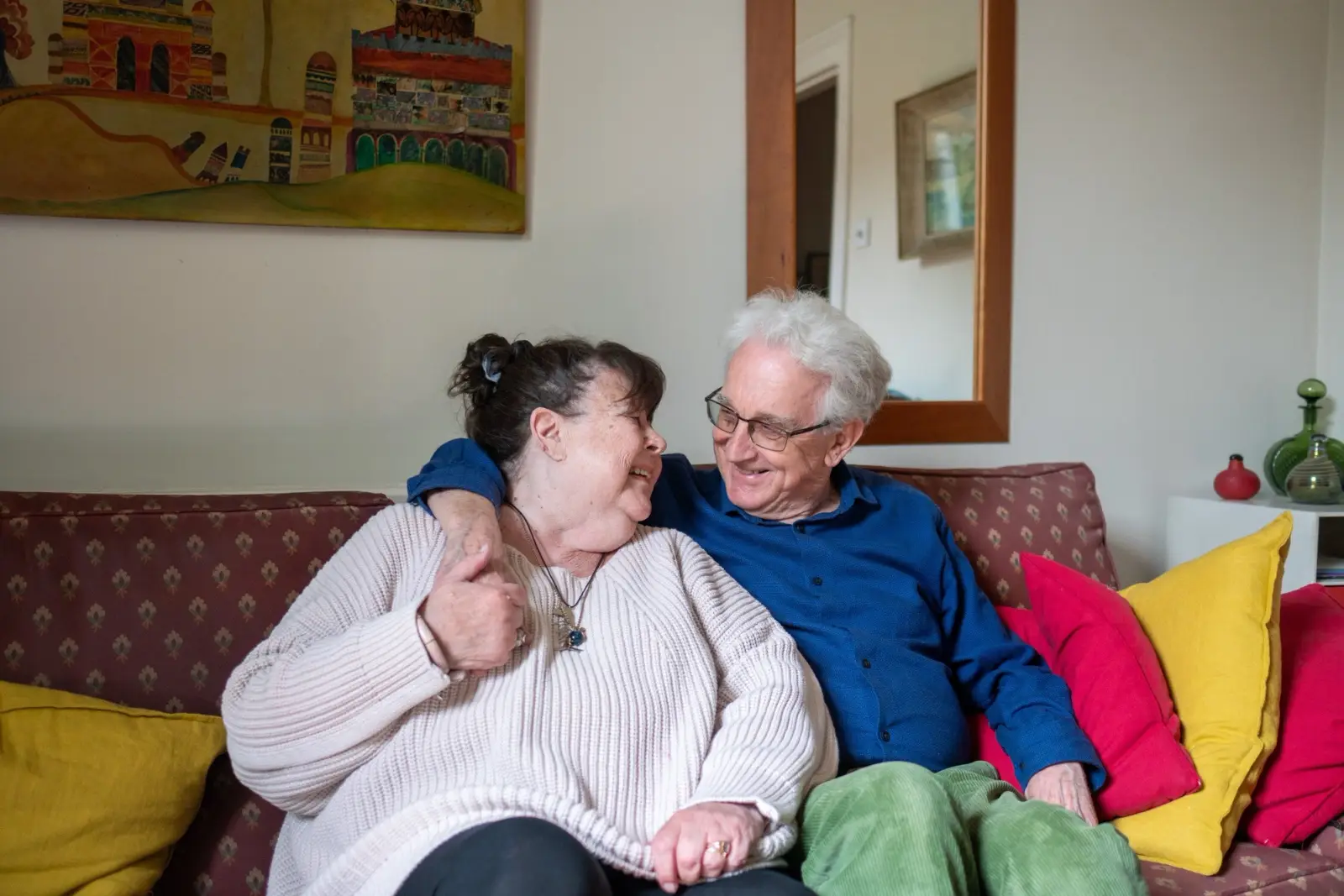Arranging care after a hospital discharge
9-minute read | 15/12/2025
Editorial Contributor
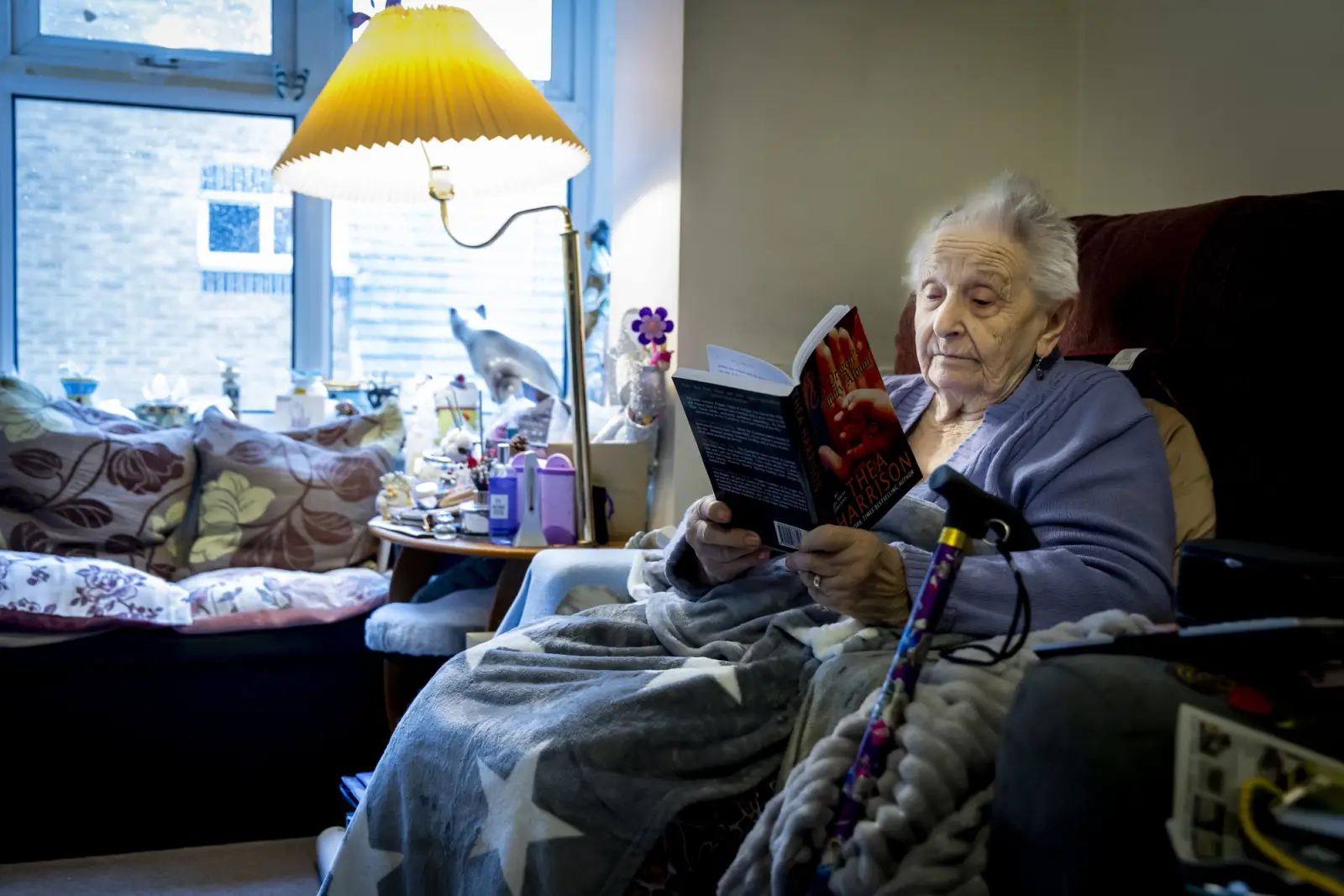
When your mum or dad is in hospital, certainties can be few and far between. From condition, outlook and discharge date, there are a lot of different things that could change.
When a loved one is in hospital, navigating their care can be stressful and confusing. But when it’s time for them to leave, arranging a safe and supported return home can feel even more overwhelming. If you’re worried about the hospital discharge process, this guide will help you understand the steps involved and how to ensure the right care is in place for a successful recovery.
What happens when elderly patients are discharged from hospital?
Hospital discharge teams are in charge of a patient’s safe transfer of care, ensuring they get the right support once they leave the hospital. Their goal is to get your loved one home as soon as they are medically fit, as wards are not the best environment for long-term recuperation.
How are patient's needs assessed?
The hospital will follow a procedure called Discharge to Assess (D2A). This is a national framework designed to speed up safe discharges by continuing the assessment and support process outside of the hospital setting.
A D2A team, which can include doctors, nurses, occupational therapists, and social workers, will assess a person’s needs and discharge them through one of four pathways:
- Pathway 0: The patient is medically fit and needs no additional support.
- Pathway 1: The patient needs short-term support at home, which may include home carers or therapists.
- Pathway 2: The patient needs temporary care in a residential setting, such as a care home or nursing home, before returning home or moving to a permanent care setting.
- Pathway 3: The patient needs ongoing nursing care in a nursing home or other healthcare facility.
For a safe discharge to happen, a senior member of staff must medically clear the patient and create a written care plan.
Can you disagree with a hospital discharge?
Yes. If you feel a discharge is unsafe for your loved one or the assessment was not done correctly, you have the right to raise a complaint. The first step is to speak to the hospital staff directly. You can also contact the hospital’s Patient Advice and Liaison Service (PALS), which can offer confidential advice and support.
Free and funded care options after hospital
Many people only need temporary support after a hospital stay while they regain their strength. The NHS may offer free care to aid a timely discharge.
Can my loved one get six weeks free care after hospital discharge?
Yes. Your loved one may be offered a type of short-term care called intermediate care or reablement care. This is an effective form of care that helps a person regain independence and reduces the risk of further hospital admissions. Most people only need support for a couple of weeks, but your loved one can receive up to six weeks of free care if they need it.
This care is NHS-funded and provided in your loved one’s home. If their home isn’t suitable, they may be offered a temporary stay in a residential setting, such as an acute hospital or other community health service.
After the six weeks are up, if further ongoing care is required, a new care needs assessment will be performed by the local authority to see if they are eligible for social care funding.
For more information, read our guide to 6 weeks free care after hospital.
What is an unsafe discharge?
An unsafe discharge from hospital is when a patient is sent home before it is medically appropriate or without the necessary support in place for their recovery. This can lead to worsening health and preventable readmissions.
Examples of an unsafe discharge include:
- The patient is still unwell or not fully recovered.
- The care plan is unclear, or there is no plan for follow-up care.
- The patient or their family don’t understand the discharge instructions, including medication details.
- The patient is sent home to an unsuitable living environment without adequate support.
Hospitals are legally required to ensure all discharges are safe by thoroughly assessing the patient’s condition and arranging appropriate follow-up care.
Arranging the right care after hospital discharge
Sometimes, there is a lack of available community services or residential care, which can lead to discharge delays. Arranging private care can be an excellent way to get your loved one home quickly and safely.
Home care vs residential care
It can be difficult to decide which option is best. While care homes have been the traditional choice, home care (also called domiciliary care) can provide the same level of support without the disruption of a move.
Home care benefits for post-hospital recovery:
- Familiar surroundings: Recovery is often faster in the comfort and familiarity of a person’s own home.
- One-to-one support: Your loved one receives personalised, one-to-one attention from a dedicated carer.
- Faster arrangements: Private home care can often be arranged more quickly than residential care, helping to prevent delayed discharge.
- Personalised rehab: A carer can provide consistent support with specific recovery and rehabilitation goals.
How Elder can help
If your loved one is keen to recover at home, but can’t access free intermediate care services, Elder can help you find a self-employed carer to provide respite care or home care visits. We can also assist with permanent care for longer-term needs.
Here’s how we can help with a smooth hospital discharge:
- Expert guidance: Our Care Advisors can liaise with the hospital discharge team to check the progress of any care needs assessment, and understand whether a self-employed carer can support your loved one’s post-discharge needs.
- Clinical communication: In some cases, our clinical team can speak with the medical professionals who are helping your loved one to ensure all their needs are accurately understood and shared with the carer.
- Quick matching: We can quickly match your loved one with pre-screened, self-employed carers, allowing for a faster and safer transfer home.
- Funding advice: Our Care Advisors can help you understand more about the different types of funding available. You can also try our free online funding calculator tool to find out whether your loved one is going to be eligible.

Find your ideal carer
We have connected over 5000 families to carers so far.
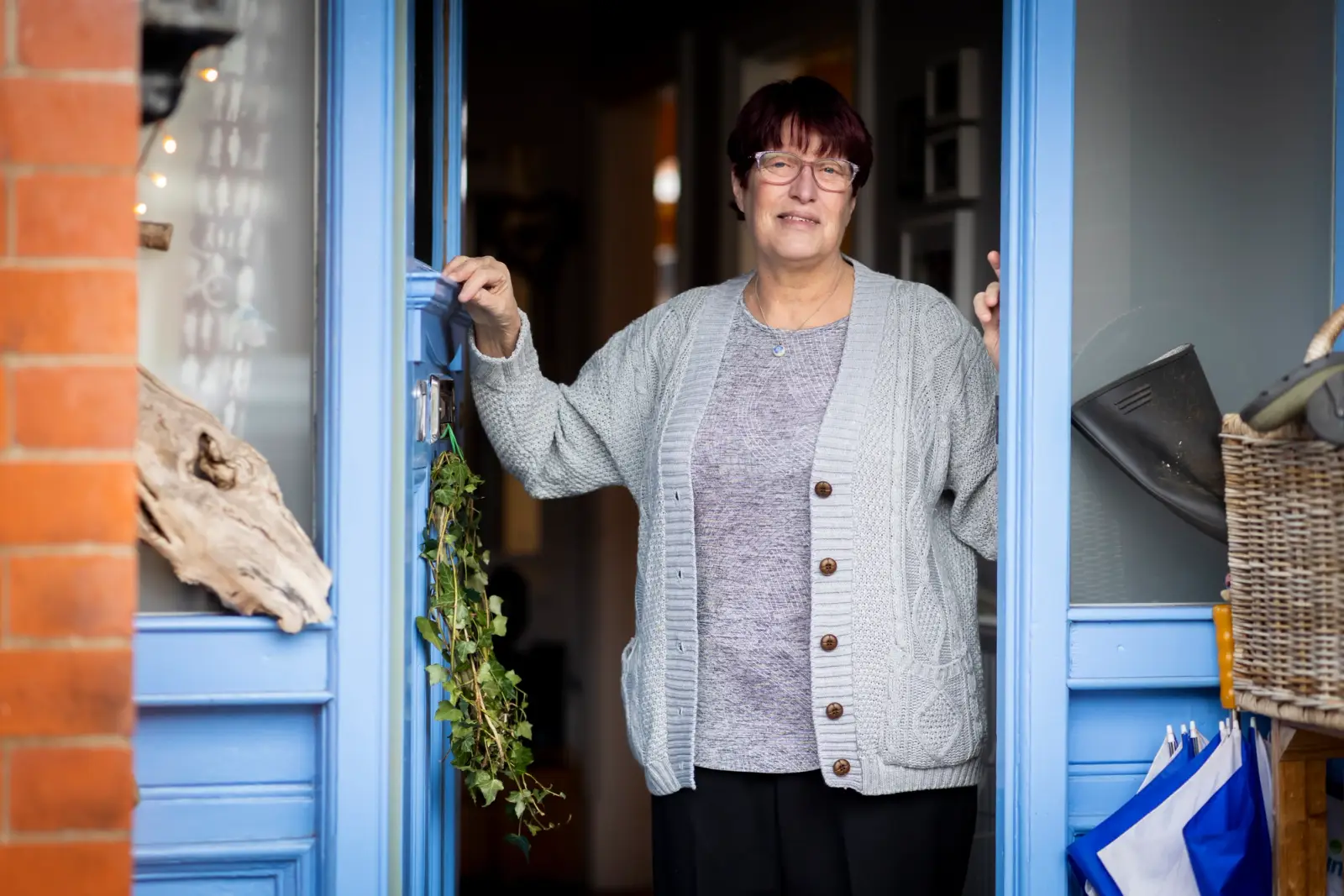
Hear from our customers
“Our carer took the stress away from my mother while she recovered”.
“I contacted Elder in desperation as my mum was coming home from hospital after a stroke and my father has dementia. I can’t stress how much our carer was invaluable not only to my parents but also to me, as the pressure of taking care of them both on my own was too overwhelming and affected my health too.”
Read the full story
Practical tips for a smoother hospital discharge
To make the process as easy as possible, here are some key tips for a successful return home.
- Create a list of questions: Write down any questions you have for the hospital staff, doctor, or GP about medication, follow-up appointments, or their recovery plan.
- Review the care plan: Ensure you get a copy of the written care plan and understand what it entails. Keep this safe for future reference.
- Explore funding options: Ask about your loved one’s eligibility for adult social care funding from the local authority. If they’re eligible, request a ‘direct payment’ to give them more control over choosing their care provider.
- Prepare the home: Before your loved one returns, make sure their home is safe. This might involve decluttering, installing mobility aids like grab rails, and stocking the fridge with food.
- Organise transport: Arrange for someone to pick you and your loved one up from the hospital, or check if the hospital can provide a non-emergency patient transport service.
Where to find additional support
While the voluntary sector cannot provide professional adult carers, many organisations offer invaluable support that can help with the recovery process. They can connect you with volunteers for help with errands, shopping, or providing companionship for your loved one:
- St. Vincent De Paul: Offers visiting and befriending services.
- Local Age UK services: Provides a wide range of support for older people, including befriending and practical help.
- The Befriending Network: A national organisation that can connect you with local befriending services.
Frequently Asked Questions
Intermediate care is a short-term, NHS-funded service (up to 6 weeks) to help a person regain independence after a hospital stay. Private home care is a flexible, privately funded option that can be arranged for any duration, from temporary respite to long-term care.
With Elder, arranging private home care can often be done very quickly, sometimes within 24 hours. This is a key advantage, as it can help prevent unnecessary delays in your loved one's discharge from the hospital.
Yes. A live-in carer can provide consistent support with a person's rehabilitation plan, such as assisting with mobility exercises, medication reminders, and ensuring a safe environment for recovery.
NHS Continuing Healthcare is for people with complex health needs that are primarily a "healthcare need" rather than a "social care need." Eligibility is determined by a comprehensive assessment. You can ask the hospital discharge team to initiate the process.
This article is for informational purposes only and not to be taken as medical advice. For medical advice, always consult your GP.
Sources
